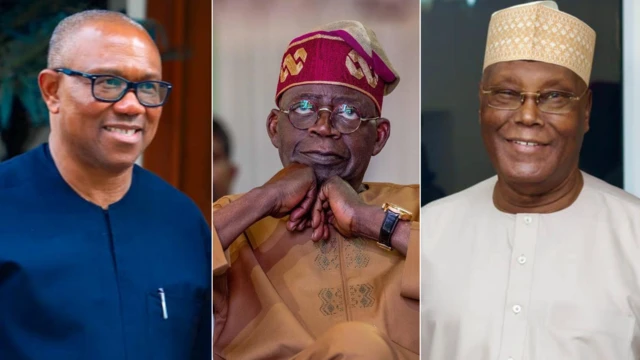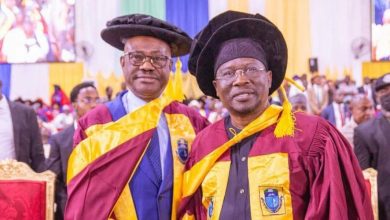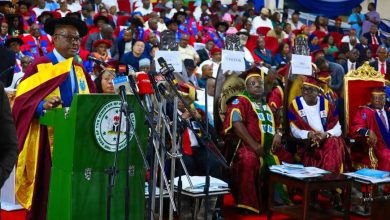
By Mogaji Wole Arisekola
The political theatre in Nigeria has once again taken a familiar turn—the seasoned actors are switching stages, but the audience remains unmoved. The drama is fierce, the noise deafening, yet the Nigerian masses, weary and wiser, are not buying the ticket this time.
It has become painfully obvious that the loudest voices attempting to tear down this government—His Excellency Atiku Abubakar, Malam Nasir El-Rufai, Rt. Hon. Rotimi Amaechi, and Mr. Peter Obi—are all veterans of the very system they now criticize. Former governors, former ministers, former powerbrokers—they’ve never known life outside the corridors of power. Many of them have never worked a day using the certificates they parade. Their fortunes were minted in politics. Their second addresses? Long abandoned.
They rose to prominence on the wings of the PDP. But once the spotlight found them, they dumped the party like a ragged orphan. They are no-nonsense operators. Their code is simple: If we’re not in government, there must be chaos.
They treat politics like a marketplace—either we’re buying or selling, but we must never walk away empty-handed. When the PDP gates didn’t open for their ambition, they sprinted to APC. When APC doors shut their chop-chop access, they changed jerseys again. It’s not about service. It’s not about the people. It’s about the next meal ticket. Like mercenary footballers, they go where the contract is sweeter.
Loyalty? Zero.
Commitment? Nonexistent.
Interest? That’s the only currency they understand.
But here’s the tragic irony—they are not even intellectually equipped to match wits with their so-called rivals in government. How do you take seriously a clique of men who can’t differentiate between constructive criticism and a tantrum? The intellectual gap is an embarrassment to our national conscience.
They didn’t do their homework before switching sides. And now, like broken records, their statements echo with lies, cheap propaganda, and tribal baiting. Every day, they expose themselves more—not as patriots, but as peddlers of deceit.
None of them have ever tabled a clear plan to expand electricity capacity. Not one has dared challenge the ruling party to a brutal, no-holds-barred debate on insecurity—a crisis they themselves helped create. When food prices rose and families starved, they offered no solution, only silence—and sweet Apala music.
“Ise ni won njijo eleya lojo ileya.”
( they are dancing foolishly on the day of sallah.)
But let’s be honest—the masses, too, are not entirely innocent. They cheer these men on. They laugh at their jokes. They excuse their greed. They’ve mortgaged their children’s future for a bowl of political porridge. And the politicians? They’ve tasted power. They’ve sipped champagne from golden cups. They’ve sold their souls for luxury.
No need to blame them. It’s a choice. This year, they opened their “transfer market” earlier than usual—hopping across zones, picking calls like Glo call centre agents. The game is deception. And the prey? The ever-gullible masses and their rabid tribal loyalists.
Even those who were mute for eight years under their kinsman’s presidency have suddenly found their voices.
Even those who looted the nation dry only months ago are now keynote speakers, receiving standing ovations—from fellow thieves.
Perhaps it’s time the government starts issuing gun licenses—just so some of these political hustlers can see the harsh truth: they are not as loved or feared as they think.
One day, the proverbial dog will go to the market—and it won’t return. And when that day comes, Nigeria may begin to heal.
The Nigerian people are watching. We see them. The same old faces in new robes. The same rotten wine in rebranded bottles. Jumping ship from one party to another, but offering nothing new.
But here’s the kicker: the people are not following. They are not decamping. Not this time.
All we ask is simple:
Give us uninterrupted power supply.
Fix our roads.
Secure our lives and properties.
Treat us with dignity and respect.
Do that—and maybe, just maybe—we’ll decamp with you.
But for now? We’re right here, exactly where you left us.
Mogaji Wole Arisekola writes from Ibadan.







